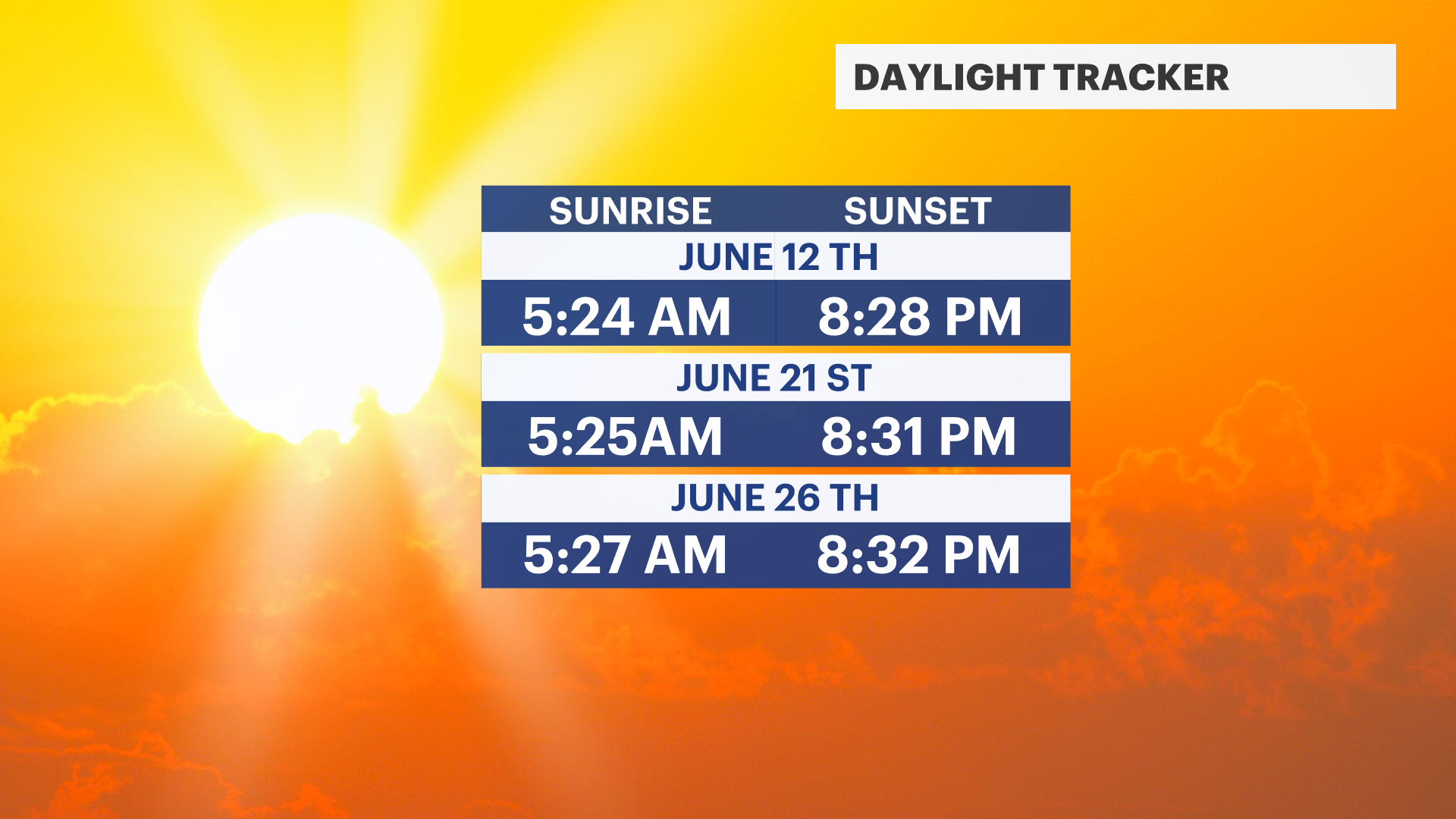More Stories
The summer solstice is quickly approaching, have you noticed how early the sun rises and how late it’s now setting? Everyone assumes that since the solstice is the day with the most daylight, that the earliest sunrise and latest sunset times naturally occur on this day -- but it technically doesn’t!

It all has to do with the Earth’s axial tilt. That magic number of 23.5 degrees gives us the different seasons and also affects the sunrise and sunset times around the globe.
Earth is now at the point in it’s orbit where the northern hemisphere is fully illuminated and temperatures at the surface will be warming up. It’s known as summer to most of us, but of course in the southern hemisphere, it’s winter. The official start time is Wednesday, June 21 at 10:57 a.m.

The word solstice comes from the Latin for “sun standing still.” To us on Earth because we are tilted, it appears as if the sun has been rising higher and higher in the sky. It is now directly overhead the Tropic of Cancer instead of the equator, as it was on the first day of Spring. The sun will now “stop” and turnaround as we head toward fall and then winter.

Sunrise and sunset times vary with latitude, but the earliest sunrise comes about a week before the solstice for most of us, on or near June 12-14. The latest sunset also occurs about a week after, near June 27. We see differences like this because of the Earth is tilted on it’s axis and also the fact that the orbit is not a perfect circle, but an ellipse. Since Earth’s orbit is an ellipse, the timing effect is lessened, compared to the winter solstice, where latest sunrise times and earliest sunset times happen two weeks on either side of the solstice. The times listed below are for Newark, New Jersey.

More from News 12

Kane In Your Corner: Caregiver crisis puts pressure on families across the tristate
1:24

Mayor Mamdani calls for new Department of Community Safety in response to mental health crisis
1:43

3 manhole fires erupt across the borough in under 24 hours
1:58

New York and New Jersey sue Trump administration over $15B funding freeze for Hudson River tunnels
0:29

Penny the Doberman pinscher wins the 150th Westminster dog show
0:50
